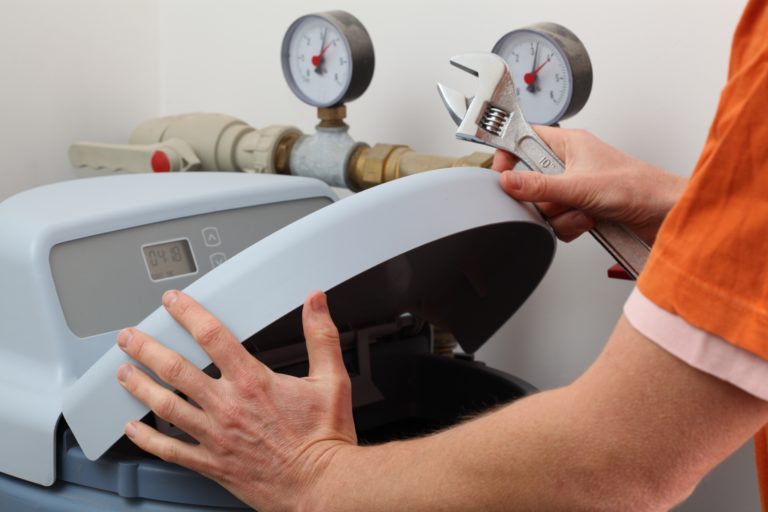Copy and paste the code below into your website where you’d like to display this infographic.
<img src="https://kineticosa.com/wp-content/uploads/2014/06/info-how-a-water-softener-works.png" width="" height="" /><br />Source: <a href="https://kineticosa.com" target="_blank" title="Kinetico San Antonio Water Softeners">KineticoSA</a>
What a water softener does:
Hard Water Facts
85% of homes in the United States are in hard water areas. Your water is hard if it contains a concentration of hard water minerals, like calcium and magnesium, higher than 17.1 mg/L.
So how does a water softener work?
Water softeners use a process called ion exchange to soften water. Little plastic beads called resin hold ions of sodium or potassium. When a dissolved rock ion is near them, they will drop or exchange the sodium or potassium ion for the dissolved rock ion. When all of the resin in your water softener is saturated with dissolved rock ions, they are “recharged” with a saline rinse. This rinse flushes dissolved rock ions down the drain as the resin grabs sodium or potassium ions again. This process leaves you with clean, soft water.
You can learn more with this cool HowStuffWorks article.
Related Reads:











